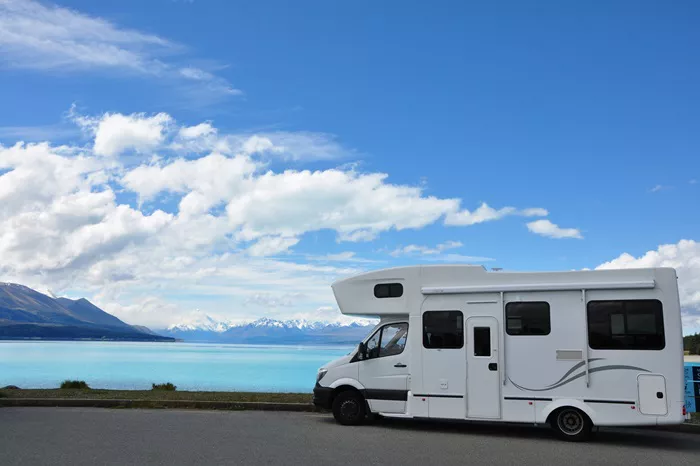When it comes to RV ownership in Florida, one of the most crucial considerations is insurance. If you’re wondering, “How much is RV insurance in Florida?” you’re not alone. This article will provide an in-depth analysis of RV insurance costs in Florida, including factors that influence rates, average costs for different RV types, strategies for reducing premiums, and the various coverage options available.
Factors Influencing RV Insurance Costs in Florida
Several key factors influence the cost of RV insurance in Florida. Understanding these factors can help you better estimate your insurance expenses and find the best coverage for your needs.
1. Type of RV
The type of RV you own plays a significant role in determining your insurance premium. RVs come in various classes and styles, each with its own insurance costs.
Class A Motorhomes: These are large, luxury motorhomes that generally have the highest insurance premiums due to their size and value.
Class B Motorhomes: Also known as camper vans, these are smaller and more affordable to insure compared to Class A motorhomes.
Class C Motorhomes: These motorhomes, with their distinctive over-cab sleeping area, fall between Class A and B in terms of insurance cost.
Travel Trailers: Insuring travel trailers is typically less expensive than motorhomes because they do not have an engine.
Fifth Wheels: These larger trailers, which require a special hitch, have insurance costs similar to travel trailers but may vary based on size and features.
2. RV Usage
How frequently and for what purpose you use your RV affects your insurance premium.
Full-Time Living: If you live in your RV full-time, you’ll likely face higher premiums. Insurers consider full-time living a higher risk.
Seasonal Use: If you only use your RV occasionally or for vacation, your insurance costs will generally be lower.
Travel Frequency: Frequent travelers may pay more for insurance compared to those who use their RV less often.
3. Coverage Options
The type and extent of coverage you choose impact your insurance costs. Common types of RV insurance coverage include:
Liability Insurance: Required by law, this covers damages you cause to others in an accident.
Collision Coverage: Covers damages to your RV resulting from a collision with another vehicle or object.
Comprehensive Coverage: Protects against non-collision-related damages, such as theft, vandalism, and natural disasters.
Uninsured/Underinsured Motorist Coverage: Provides protection if you are in an accident with a driver who has insufficient or no insurance.
Roadside Assistance: Offers help in case of breakdowns or emergencies, including towing, tire changes, and fuel delivery.
4. Location and State Regulations
Florida’s unique environment and regulations also influence insurance costs.
Population Density: Florida’s high population density can lead to increased accident rates, impacting insurance premiums.
Weather Risks: The state’s susceptibility to hurricanes and floods can raise insurance rates due to higher risk factors.
Insurance Regulations: Florida’s specific insurance laws and requirements may affect the cost and type of coverage available.
5. Driving History and Personal Factors
Your driving history and personal details can also influence your RV insurance rates.
Driving Record: A clean driving record with no accidents or violations can help lower your insurance costs.
Age and Experience: Younger drivers or those with less experience may face higher premiums.
Credit Score: Insurers may use your credit score as a factor in determining your insurance rates. A higher credit score can lead to lower premiums.
Average RV Insurance Costs in Florida
Understanding the average costs of RV insurance in Florida can help you budget for this expense. On average, RV insurance premiums in Florida range from $1,000 to $2,500 annually. The specific cost will depend on several factors, including the type of RV and your coverage choices.
1. Class A Motorhomes
Annual Premium: $1,500 to $3,000
Description: These large, luxury motorhomes often have the highest insurance costs due to their size and value.
2. Class B Motorhomes
Annual Premium: $1,000 to $2,000
Description: Smaller and more affordable than Class A, these camper vans typically have lower insurance rates.
3. Class C Motorhomes
Annual Premium: $1,200 to $2,500
Description: With features between Class A and B motorhomes, Class C motorhomes have moderate insurance costs.
4. Travel Trailers
Annual Premium: $500 to $1,500
Description: Insuring travel trailers is generally less expensive due to the absence of an engine.
5. Fifth Wheels
Annual Premium: $700 to $1,800
Description: These large trailers can have insurance costs similar to travel trailers but may vary based on size and features.
How to Lower Your RV Insurance Costs
Reducing your RV insurance premiums is possible through various strategies. Here are some tips to help you manage and lower your insurance costs:
1. Shop Around and Compare Quotes
Obtaining quotes from multiple insurance providers allows you to compare rates and find the best deal.
Comparison Tools: Use online tools and websites to compare insurance quotes from different providers.
Agent Assistance: Consult with insurance agents who can help you explore various options and find the most competitive rates.
2. Increase Your Deductible
Raising your deductible can lower your insurance premium. However, ensure you can afford the higher deductible amount if you need to file a claim.
Deductible Amount: Consider increasing your deductible to reduce your annual premium.
Emergency Fund: Maintain an emergency fund to cover the higher deductible if needed.
3. Bundle Your Policies
Bundling your RV insurance with other policies, such as home or auto insurance, can result in significant savings.
Discounts: Many insurers offer discounts for bundling multiple policies with the same provider.
Coverage Review: Regularly review your bundled policies to ensure you are getting the best possible rates.
4. Maintain a Clean Driving Record
A clean driving record can help lower your insurance premiums. Avoiding accidents and traffic violations is crucial for keeping your rates low.
Safe Driving: Practice safe driving habits and adhere to traffic laws to maintain a clean record.
Driver Training: Consider defensive driving courses to improve your driving skills and potentially lower your insurance costs.
5. Take Advantage of Discounts
Inquire about available discounts that can help reduce your insurance premiums.
Safety Features: Discounts may be available for RVs equipped with safety features or anti-theft devices.
RV Clubs: Membership in RV clubs or associations can sometimes qualify you for additional discounts.
See Also: How Much Is Full Coverage RV Insurance?
Types of RV Insurance Coverage
Choosing the right type of coverage is essential for ensuring adequate protection for your RV. Here are the main types of RV insurance coverage:
1. Liability Coverage
Description: Required by law, this coverage protects you against claims for damages or injuries you cause to others in an accident.
Coverage Limits: Ensure you have sufficient liability coverage to meet Florida’s minimum requirements and protect your assets.
2. Collision Coverage
Description: Covers damages to your RV resulting from a collision with another vehicle or object.
Policy Options: Choose a collision coverage policy that meets your needs and budget.
3. Comprehensive Coverage
Description: Protects against damages not related to collisions, such as theft, vandalism, and natural disasters.
Coverage Limits: Ensure comprehensive coverage includes protection against common risks in Florida, such as hurricanes.
4. Uninsured/Underinsured Motorist Coverage
Description: Provides protection if you are in an accident with a driver who has insufficient or no insurance.
Importance: This coverage ensures you have financial protection if the at-fault driver cannot cover the damages.
5. Roadside Assistance
Description: Offers help in case of breakdowns or emergencies, including towing, tire changes, and fuel delivery.
Coverage Options: Consider adding roadside assistance to your policy for additional convenience and security.
Choosing the Right RV Insurance Provider
Selecting the right insurance provider is crucial for obtaining the best coverage and rates. Consider the following factors when choosing an RV insurance company:
1. Reputation and Customer Service
Research: Investigate the reputation of insurance providers and their customer service ratings.
Reviews: Read customer reviews and testimonials to gauge the level of satisfaction with the provider.
2. Coverage Options and Flexibility
Coverage Range: Ensure the provider offers a range of coverage options to meet your specific needs.
Policy Customization: Look for insurers that allow customization of policies to tailor coverage to your requirements.
3. Financial Stability
Credit Rating: Choose a provider with strong financial stability and a good credit rating to ensure reliable coverage.
Claims Handling: Evaluate the provider’s ability to handle claims efficiently and effectively.
4. Claims Process
Ease of Filing: Review the claims process to ensure it is straightforward and efficient.
Customer Support: Choose a provider with strong customer support to assist you throughout the claims process.
Conclusion
In summary, the cost of RV insurance in Florida can vary widely based on several factors, including the type of RV, usage, coverage options, location, and personal factors. On average, RV insurance in Florida ranges from $1,000 to $2,500 annually. By understanding these factors, shopping around for quotes, increasing your deductible, bundling policies, maintaining a clean driving record, and taking advantage of discounts, you can manage and potentially reduce your insurance costs.
Choosing the right insurance provider is essential for ensuring you receive adequate coverage and support. With careful consideration and research, you can find the best RV insurance policy to protect your investment and enjoy your travels throughout the Sunshine State.






















